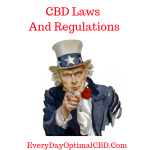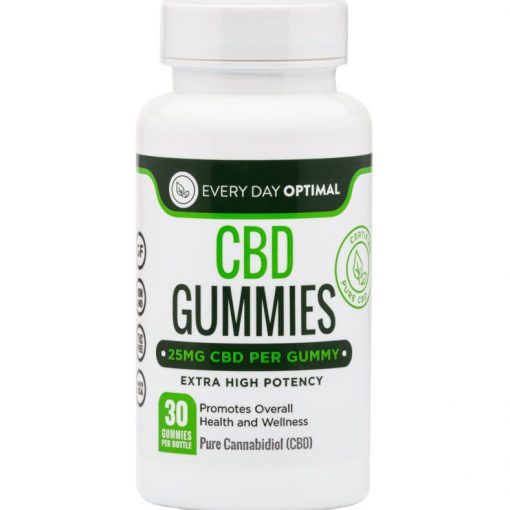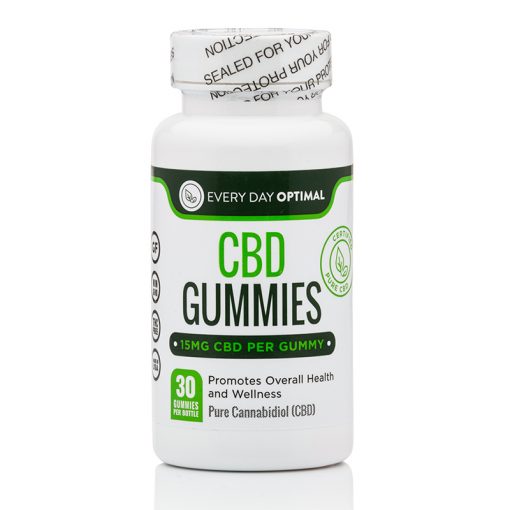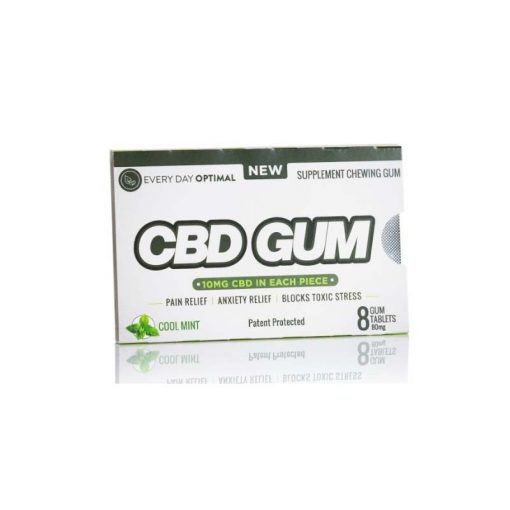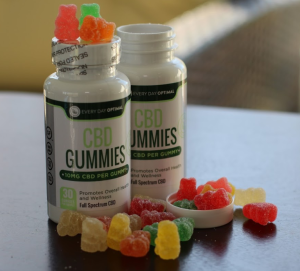No products in the cart.
Blog
Are CBD Gummy Bears Legal? Hemp Derived CBD Laws and Regulations
Table of Contents
2020 CBD Laws and Regulations
Perhaps you have been told by someone at some point that you should consider taking a CBD-infused product to help for whatever reason – and trust me, there are a lot of good reasons to start a CBD regimen. You are willing to give it a shot but at the same time you question the legality of the product. You know that those little gummy bears may be delicious and could potentially even help your ailment, but you also understand that they aren’t worth running the risk of going to jail over as well. You have come to the right place. We are here to put your worries to rest by providing all of the latest information in a straightforward and easy to understand way. First, a little information on those tempting little gummy bears before addressing all of the confusion circling them.
CBD Gummy Bears
CBD can easily be infused into drink and food items for those whom are opposed to the harshness that is sometimes associated with traditional smoking or modern-day vaping. Choosing to consume your CBD in this way makes it incredibly easy to monitor the strength of the dose being administer. Compared to traditional pharmaceutical medications, CBD gummy bears legal and are far safer (and tastier), with virtually no adverse side-effects. Users do not run the risk of developing a physical dependency and there is absolutely no threat of overdose.
Are CBD Gummy Bears Legal?
This is a somewhat complicated question. As it stands today, CBD remains in a legal gray zone. CBD gummy bears are legal nor illegal, which creates nothing but confusion for you, the consumer. State and federal law have clashed together, leaving the people alone to decipher the matter for themselves, so your question is asked with just cause. Historically, Cannabidiol has been listed on the controlled substance list, illegal for all purposes. It wasn’t until 2004 that the first legal battle was won in its favor, which ultimately paved way for a bill to be signed into law ten years later, drastically changing everything for the hemp industry.
The Hemp Industry Association vs. the DEA 2004 Case
In 2001, the Drug Enforcement Agency (DEA) attempted to issue an Interpretive Rule that would ban hemp seed as well as any other product that contains “any amount” of THC. The Hemp Industry Association (HIA) alongside several other plaintiffs immediately responded by filing an “Urgent Motion for Stay” of this new interpretive rule. The motion was approved, allowing for hemp foods and other hemp byproducts to continue to be sold at thousands of locations across the country throughout the course of the litigation. After three long years of debate, the Ninth Circuit Court of Appeals issued their unanimous decision to rule in favor of the HIA, thereby permitting industrial hemp to remain legal strictly for import and sale in the U.S., though it was made clear that American farmers were not permitted to grow and cultivate it themselves. Regardless, this was a monumental victory for the hemp industry.
Agricultural Act of 2014
Also known as the 2014 Farm Bill, the Agricultural Act of 2014 was signed into law on February 7th and is the most cited source in the defense of the legality of the industrial hemp industry. It stated that a State’s Department of Agriculture or Institute of Higher Education could legally cultivate hemp under state law. Just as important, Section 7606 of the act gives an official definition to the term ‘industrial hemp,’ stating that it is any cannabis plant that contain less than 0.3% THC (tetrahydrocannabinol), which is the intoxicating compound found exclusively in the marijuana plant. With the legalization of industrial hemp, the case for legal Cannabidiol (CBD) extraction was strengthened.
CBD Gummies and Edibles
$39.99 – $74.99
60 Count
Available!
Available!
CBD Gummies and Edibles
$30.00 – $44.00
Sale!
CBD Gummies and Edibles
$19.99 – $59.99
Hemp Derived CBD vs. Marijuana Derived CBD
Hemp and marijuana both originate from the Cannabis Sativa L family of plants. Based widely upon the grower’s intent and strain chosen to grow, focus will be placed either upon flower development, or on stalk, seed, and leaf growth. Cannabis that is cultivated exclusively for its flower content typically has a very high THC ratio and is most commonly referred to as “marijuana.” Alternatively, cannabis plants that are grown with an emphasis on stalk and leaf growth are virtually THC free (less than 0.2%) and are commonly referred to as industrial hemp. Cannabidiol (CBD) can be extracted from either crop and there is essentially no difference between hemp derived CBD and marijuana derived CBD. Molecularly, they are identical – CBD is CBD. From a legal standpoint, however, the source could be the differentiating factor between legality. Protected under the Agricultural Act of 2014, a CBD product that has been derived from hemp is considered legal, whereas any CBD derived from marijuana is a direct violation of state law. It is important to also note that medical cannabis is legal in many states across the country, allotting for a more potent source for CBD extraction as well.
In which countries is CBD Gummy Bears Legal?
As of May 8th, 2018, there are 17 states within the U.S. that have produced written laws governing the use of CBD. This is an ever-growing number, but as it stands currently the list includes:
Alabama
On Apr. 1, 2014, Alabama Governor Robert Bentley signed SB 174, known as “Carly’s Law,” which allows an affirmative defense against prosecution for CBD possession by people suffering from a debilitating epileptic condition.
The law states that “a prescription for the possession or use of cannabidiol (CBD) as authorized by this act shall be provided exclusively by the UAB [University of Alabama at Birmingham] Department for a debilitating epileptic condition.”
Since marijuana is illegal under federal laws, doctors are not allowed to write “prescriptions” for it. The states that have legal medical marijuana allow doctors to “recommend” it.
On May 4, 2016, Gov. Bentley signed HB 61 into law. Known as Leni’s Law, the bill provides an affirmative defense for possession of CBD oil “for specified debilitating conditions that produce seizures.”
Georgia
On Apr. 16, 2015 Georgia Governor Nathan Deal signed HB 1 (Haleigh’s Hope Act) into law, allowing the use of cannabis oil that is contains no more than 5% THC for the following conditions: seizure disorders, sickle cell anemia, cancer, Crohn’s disease, ALS (Lou Gehrig’s disease), multiple sclerosis, mitocondrial disease and Parkinson’s disease.
Deal stated at the signing: “For the families enduring separation and patients suffering pain, the wait is finally over… Now, Georgia children and their families may return home while continuing to receive much-needed care. Patients such as Haleigh Cox, for whom this bill is named, and others suffering from debilitating conditions can now receive the treatment they need, in the place where they belong: Georgia.”
According to the Georgia Department of Public Health, “The new law does not address how low THC oil is made, purchased or shipped. The law only creates a procedure to ensure qualified persons will be protected from prosecution for having it in their possession.”
On May 7, 2018, Gov. Deal signed HB 65 into law, which adds PTSD and intractable pain to the list of approved conditions.
Indiana
On Apr. 27, 2017, Gov. Eric Holcomb signed HB 1148 into law, allowing the use of cannabidiol that is at least 5% CBD and contains no more than 0.3% THC for treatment-resistant epilepsy.
On Mar. 21, 2018, Gov. Holcomb signed SB 52 into law, which allows distribution and retail sail of “low-THC hemp extract,” defined as a product “(1) derived from Cannabis sativa L. that meets the definition of industrial hemp; (2) that contains not more than 0.3% delta-9-THC (including precursors); and (3) that contains no other controlled substances.”
Iowa
On May 30, 2014, Iowa Governor Terry Branstad signed SF 2360 into law, saying “This bill received tremendous support and truly shows the power of people talking to their legislators and to their governor about important issues to them, to their families and to their children.” On May 12, 2017, Governor Branstad signed HF 524 into law.
According to the Iowa Department of Health Office of Medical Cannabidiol Website (accessed Mar. 15, 2018), “a person may recommend, possess, use, dispense, deliver, transport, or administer cannabidiol if the recommendation, possession, use, dispensing, delivery, transporting, or administering is in accordance with new chapter 124E of the Iowa Code.”
The Office of Medical Cannabidiol issues registration cards and the law “requires medical cannabidiol dispensaries to begin dispensing to patients in Iowa by December 1, 2018.”
Kentucky
On Apr. 10, 2014, Kentucky Governor Steve Beshear signed SB 124. The law excludes from the definition of marijuana the “substance cannabidiol, when transferred, dispensed, or administered pursuant to the written order of a physician practicing at a hospital or associated clinic affiliated with a Kentucky public university having a college or school of medicine.” The law does not address how patients may obtain the CBD.
Mississippi
On Apr. 17, 2014, Mississippi Governor Phil Bryant signed HB 1231, “Harper Grace’s Law,” which allows for cannabis extract, oil, or resin that contains more than 15% CBD and less than 0.5% THC.
“The CBD oil must be obtained from or tested by the National Center for Natural Products Research at the University of Mississippi and dispensed by the Department of Pharmacy Services at the University of Mississippi Medical Center.”
The law also provides an affirmative defense for defendants suffering from a debilitating epileptic condition who accessed the CBD oil in accordance with the requirements set forth in the bill and is effective July 1, 2014.
Governor Bryant released the following statement to the media on Apr. 17, 2014: “The bill I signed into law today will help children who suffer from severe seizure disorders. Throughout the legislative process I insisted on the tightest controls and regulations for this measure, and I have been assured by the Mississippi Bureau of Narcotics that CBD oil is not an intoxicant.
The outcome is a bill that allows this substance to be used therapeutically as is the case for other controlled prescription medications. I remain opposed to any effort that would attempt to legalize marijuana or its derivatives outside of the confines of this bill.” On Mar. 20, 2017, Gov. Bryant approved SB 2610, which amended the state’s CBD law to “clarify use in research of seizures and other medical conditions.” The bill allows other pharmacies to dispense CBD in addition to the University of Mississippi Medical Center, with federal and state regulatory approval.
Missouri
On July 14, 2014, Missouri Governor Jay Nixon signed HB 2238 into law, which allows the use of cannabis oil that is at least 5% CBD and less than 0.3% THC for intractable epilepsy.
The bill requires a neurologist to determine that the patient did not respond to at least three treatment options to be eligible to use the marijuana extract.
The Missouri Hemp Extract Registration Program issues registration cards patients with a diagnosis of intractable epilepsy who meet the program’s criteria, which allows them to possess and use CBD oil in the state.
North Carolina
On July 3, 2014, North Carolina Governor Pat McCrory signed HB 1220 into law. The bill allowed universities to conduct clinical trials using CBD oil that was less than 0.3% THC and at least 10% CBD only for the treatment of intractable epilepsy. On July 16, 2015,
Gov. McCrory signed HB 766, which amended the CBD law. According to the North Carolina Department of Health and Human Services (DHHS), “hemp extract must be composed of less than nine-tenths of one percent (0.9%) tetrahydrocannabinol (THC) by weight, at least five percent (5%) cannabidiol (CBD) by weight and may contain no other psychoactive substances.”
By law, patients are allowed to use and possess CBD but it remains illegal to cultivate or produce hemp extract in the state. People in possession of the DHHS Caregiver Registration letter are allowed to carry hemp extract outside their homes.
Oklahoma
On Apr. 30, 2015, Oklahoma Governor Mary Fallin signed HB 2154, known as Katie’s Law, which allows the use of cannabis oil that is no more than 0.3% THC for the treatment of severe forms of epilepsy. Fallin stated at the signing: “This bill will help get sick children potentially life-changing medicine.
By crafting the legislation in a way that allows for tightly controlled medical studies, we can ensure we are researching possible treatments in a responsible and scientific way. The CBD oil we are studying is a non-intoxicating derivative of marijuana. It is not marijuana, and it is not anything that can make you ‘high.’
This law has been narrowly crafted to support highly supervised medical trials for children with debilitating seizures. It is not a first step towards legalizing marijuana, and I will never support the legalization of marijuana in Oklahoma.” On May 13, 2016, Gov. Fallin signed HB 2835 into law.
As of Nov. 1, 2016, the law includes adults and adds “spasticity due to multiple sclerosis or due to paraplegia, intractable nausea and vomiting, and appetite stimulation with chronic wasting diseases” to the list of approved conditions. On Apr. 17, 2017, Gov. Fallin signed HB 1559, amending the law (effective Nov. 1, 2017), to exclude from the definition of marijuana “any federal Food and Drug Administration-approved cannabidiol drug or substance.”
South Carolina
On June 2, 2014, South Carolina Governor Nikki Haley signed S 1035 into law. “Julian’s Law” pertains to people who obtain a written certification signed by a physician “stating that the patient has been diagnosed with Lennox-Gastaut Syndrome, Dravet Syndrome, also known as ‘severe myoclonic epilepsy of infancy’, or any other severe form of epilepsy that is not adequately treated by traditional medical therapies and the physician’s conclusion that the patient might benefit from the medical use of cannabidiol.”
Those patients may use CBD oil that is less than 0.9% THC and more than 15% cannabidiol, which is to be provided by the Medical University of South Carolina in a study to determine the effects of CBD on controlling seizures.
South Dakota
On Mar. 17, 2017, South Dakota Governor Dennis Daugaard signed SB 95 into law. The law added cannabidiol to the list of Schedule IV controlled substances and excluded it from the definition of marijuana, but specified that the CBD must be a product approved by the United States Food and Drug Administration (FDA).
Tennessee
On May 16, 2014, Tennessee Governor Bill Haslam signed SB 2531 into law. The bill allows the use of cannabis oil containing cannabidiol (CBD) that has less than 0.9% THC “as part of a clinical research study on the treatment of intractable seizures when supervised by a physician practicing at… a university having a college or school of medicine.”
The study is authorized for four years. On May 5, 2015, Governor Haslam signed SB 280 into law. The bill allows the use of CBD oil that is less than 0.9% THC and that is “obtained legally in the United States and outside of” Tennessee. The bill went into effect immediately.
Texas
On June 1, 2015, Texas Governor Greg Abbott signed SB 339, which allows the use of cannabis oil that is no more than 0.5% THC and at least 10% CBD for the treatment of intractable epilepsy. The bill requires patients to get approval from two certified specialists. Governor Abbot stated:
“There is currently no cure for intractable epilepsy and many patients have had little to no success with currently approved drugs. However, we have seen promising results from CBD oil testing and with the passage of this legislation, there is now hope for thousands of families who deal with the effects of intractable epilepsy every day.”
The law as written requires physicians to “prescribe” CBD, which would break federal law. States with legal programs allow doctors to “recommend” as opposed to prescribe.
However, the Texas Compassionate Use Program says that “prescription” is defined as “an entry in the compassionate-use registry” and three dispensing organizations had been licensed as of Dec. 15, 2017.
Utah
On Mar. 21, 2014, Utah Governor Gary Herbert signed HB 105, known as “Charlee’s Law,” which allows the use and possession of marijuana extract, under certain conditions, by people with intractable epilepsy who have a statement signed by a neurologist.
The extract must be composed of less than 0.3% tetrahydrocannabinol (THC) and at least 15% cannabidiol (CBD) by weight, and may not contain any other psychoactive substance. The law goes into effect on July 1, 2014.
The extract must be obtained in a sealed container from a laboratory that is licensed in the state where it was produced, with a label stating the extract’s ingredients and origin, and transmitted by the laboratory to the Utah Department of Health. The Utah Department of Health is required to determine the details of the registration program. Kristen Stewart of the Salt Lake Tribune wrote in her article “Utah
Families Celebrate Passage of Cannabis ‘Charlee’s Law,’” dated Mar. 25, 2014: “HB105 gives Utahns with epilepsy trial access to a non-intoxicating, seizure-stopping cannabis oil. But it doesn’t take effect until July 1, 2014, and until then, Utahns can’t legally possess cannabis oil. And obtaining it after that date will still risk violating federal law — and require jumping through a set of still-vaguely defined hoops.
Currently, patients will need to travel to states where medical marijuana is legal and import cannabis oil themselves. Doing so remains technically a violation of federal law.” According to the Utah Department of Health Hemp Registry, “To legally possess hemp extract under Utah law, an individual must apply for and obtain a hemp extract registration card from the Utah Department of Health, Office of Vital Records and Statistics (OVRS)”
Virginia
On Feb. 26, 2015, Virginia Governor Terry McAuliffe signed HB 1445 into law. The bill stated: “In any prosecution… involving marijuana in the form of cannabidiol oil… it shall be an affirmative defense that the individual possessed such oil pursuant to a valid written certification… for treatment or to alleviate the symptoms of… intractable epilepsy.”
The oil must contain at least 15% CBD and no more than 5% THC. A Feb. 26, 2015 quote on Gov. McAuliffe’s Facebook page stated: “The whole reason I got into politics was to bring about a positive impact in the lives of families across the Commonwealth. This piece of legislation is a tremendous step forward.” On Mar. 9, 2018, Gov. Ralph Northam signed HB 1251, expanding the list of conditions to “any diagnosed condition or disease determined by the practitioner to benefit from such use.” The Virginia Board of Pharmacy “is currently implementing a process for issuing pharmaceutical processor permits [for cannabidiol oil]. It is anticipated that a Request for Application (RFA) process will open in the spring of 2018.”
Wisconsin
On Apr. 16, 2014, Wisconsin Governor Scott Walker signed AB 726, known as Lydia’s Law, which states that “any physician may provide an individual with a hard copy of a letter or other official documentation stating that the individual possesses cannabidiol to treat a seizure disorder if the cannabidiol is in a form without a psychoactive effect.”
A release from the Governor’s office characterizes the law as “clearing the way for a new treatment for children suffering from seizure disorders, pending FDA approval.” On Apr. 17, 2017, Gov. Walker signed SB 10 into law, which replaced “seizure disorder” with “medical condition,” broadening the original bill
Wyoming
On July 1, 2015, HB 32 became law after Gov. Matt Mead neither signed the bill nor vetoed it, allowing the use of hemp extract that contains at least 15% CBD and no more than 0.3% THC for the treatment of intractable epilepsy.
The Wyoming Department of Agriculture (WDA) stated, “We do not anticipate a licensing program prior to the start of 2019… The main hurdle the program faces is funding… This legislation had no appropriation attached and in order to start the new program, the WDA needs funding to start and implement the program.”
State Laws Affecting Hemp Sales
Each of the aforementioned states hold their own set of rules and regulations restricting and controlling legal hemp sales. State policymakers in at least 41 states have taken steps to address various issues in policy including the legal definition of hemp, certification of seeds, regulation, state-wide commissions as well as legal protection for the growers. Some states wishing to establish these programs require either a waiver from the DEA or a change in federal law prior to implication. In order to comply with state regulations, it is essential that the grower be registered, licensed, or otherwise permitted by the state agency that oversees the program. Requirements for licenses, registration, and permits could possibly include:
- Criminal background checks
- Registering the location of the grow-site(s)
- Periodic renewals – typically every 1-3 years
- Strict record-keeping is required as well as reporting any distribution or sales including to whom it was distributed or sold, including processors.
- Documentation from an Institute of Higher Education or a Department of Agriculture is required as proof that the cultivator is participating in a state-approved program.
In addition, the Department of Agriculture or Institute of Higher Education that oversees the hemp cultivation program is typically permitted to conduct routine inspections, review records, and test the plants being cultivated. Any violation of these policies and regulations could result in a revoke of license and/or an imposition of civil and/or criminal penalties against the grower.
Federal Laws and Regulations
Contrary to popular belief, CBD is in fact not legal in all 50 states of the U.S., nor technically in any state. Despite individual state laws and the 2014 Farm Bill that protects them, the United States Government maintains that CBD is and always has been illegal on a federal level and that those who violate the law will run the risk of being arrested and prosecuted under federal law. Rusty Payne, a spokesperson from the Drug Enforcement Administration (DEA) did, however, offer some comforting information by mentioning that “It would be an inappropriate use of federal resources to go after a mother because her child has epileptic seizures and has found something that can help and has helped.” He further stated, “Are they breaking the law? Yes, they are. Are we going to break her door down? Absolutely not. And I don’t think she’ll be charged by any U.S. attorney.” So, while CBD is technically illegal on a federal scale, the DEA is not actively arresting and prosecuting anyone who consumes it. Fortunately, there is some good news in the works.
The Hemp Farming Act of 2018
As previously discussed, although industrial hemp and the CBD that is extracted from it may be legal on a state level, the Federal Government and DEA still view it as an illegal substance. One Republican senator from Kentucky hopes to change that. U.S. Senate Majority Leader and a senior member of the Senate Agriculture Committee, Mitch McConnell, has proposed a new bill called the Hemp Farming Act of 2018. The proposed bill would remove hemp from the Schedule I controlled substances list and make it an ordinary agricultural commodity. The bill will not legalize medical marijuana and it will remain illegal for all purposes. The proposal received overwhelming support from the Senate Agriculture Committee and if it is signed into law, CBD extracted from hemp will be completely legal on not only a state level, but on a federal one as well.
Benefits of Using CBD
Cannabidiol is the most well-research cannabinoid to date. Known in the scientific community as the “medical compound,” it has been noted to treat numerous ailments seen here and neurodegenerative diseases like Alzheimer’s and Parkinson’s diseases. It has shown to be a promising treatment for glaucoma, and many other disorders as well. Cannabidiol is such an effective form therapy due widely to its enormous effect on one’s endocannabinoid system – which is widely believed to be the most crucial system in the human body, responsible for establishing and maintaining health. Therefore, CBD gummy bears legal and useful is not only successful in treating disorders and other conditions, but in preventing them as well. The possibilities of CBD application could be limitless!
Learn more about our CBD Gummies here!
FAQ
Are CBD Gummy Bears Legal?
To put it simply, CBD gummies are legal in every state that has legalized hemp and CBD extraction. The only states where it is illegal are those that have not legalized hemp. While this is the case on a federal level, many states have their laws regarding the legality of other cannabinoid products.
Is CBD Gummy Bears Safe?
Absolutely! Gummy Bears are made using natural ingredients and only the highest quality hemp-derived CBD for results you can count on. They also contain zero THC so they will not cause any psychoactive effect.
Benefits of Using CBD Gummy Bears?
Using CBD gummy bears is an excellent way to give your body the health benefits that CBD has to offer. These edibles are convenient and delicious so you can enjoy them anytime you like. They also come in a variety of natural fruit flavors, perfect for children and adults alike!
Bibliography
Federal Register / Vol. 66, No. 195 / Tuesday, October 9, 2001 / Rules and Regulations https://www.votehemp.com/wp-content/uploads/2018/09/DEA_interpretiverule.pdf
“HIA v. DEA – Amicus Curiae Brief filed by DKT Liberty Project in Support of Petitioners” 9thCircuit Court of Appeals, 26 June 2003,https://www.votehemp.com/wp-content/uploads/2018/09/HIAvDEA_9th_final_decision.pdf
Hanson, Karmen, and Alise Garcia. “State Medical Marijuana Laws.” Same Sex Marriage Laws and Regulations by State, 27 June 2018, www.ncsl.org/research/health/state-medical-marijuana-laws.aspx.
“Agricultural Act of 2014: Highlights and Implications” United States Department of Agriculture, 19 March 2018,
https://www.ers.usda.gov/agricultural-act-of-2014-highlights-and-implications/
“State Medical Marijuana Laws” National Conference of State Legislatures, 27 June 2018, http://www.ncsl.org/research/health/state-medical-marijuana-laws.aspx
“State Industrial Hemp Statutes” National Conference of State Legislatures, 8 Aug. 2018, http://www.ncsl.org/research/agriculture-http://www.ncsl.org/research/agriculture-and-rural-development/state-industrial-hemp-statutes.aspx
Segall, Bob. “DEA: Feds Won’t Arrest CBD Oil Users, Neither Should Indiana.” 13 WTHR Indianapolis, 29 Dec. 2017, http://www.wthr.com/article/dea-feds-wont-arrest-cbd-oil-users-neither-should-indiana.
James. “H.R.5485 – 115th Congress (2017-2018): Hemp Farming Act of 2018.” Congress.gov, 12 Apr. 2018, www.congress.gov/bill/115th-congress/house-bill/5485.
Perucca, Emilio. “Cannabinoids in the Treatment of Epilepsy: Hard Evidence at Last?” Advances in Pediatrics., U.S. National Library of Medicine, 31 Dec. 2017, www.ncbi.nlm.nih.gov/pmc/articles/PMC5767492/.
Fernández-Ruiz, J, et al. “Cannabidiol for Neurodegenerative Disorders: Important New Clinical Applications for This Phytocannabinoid?” Advances in Pediatrics., U.S. National Library of Medicine, Feb. 2013, www.ncbi.nlm.nih.gov/pubmed/22625422.


